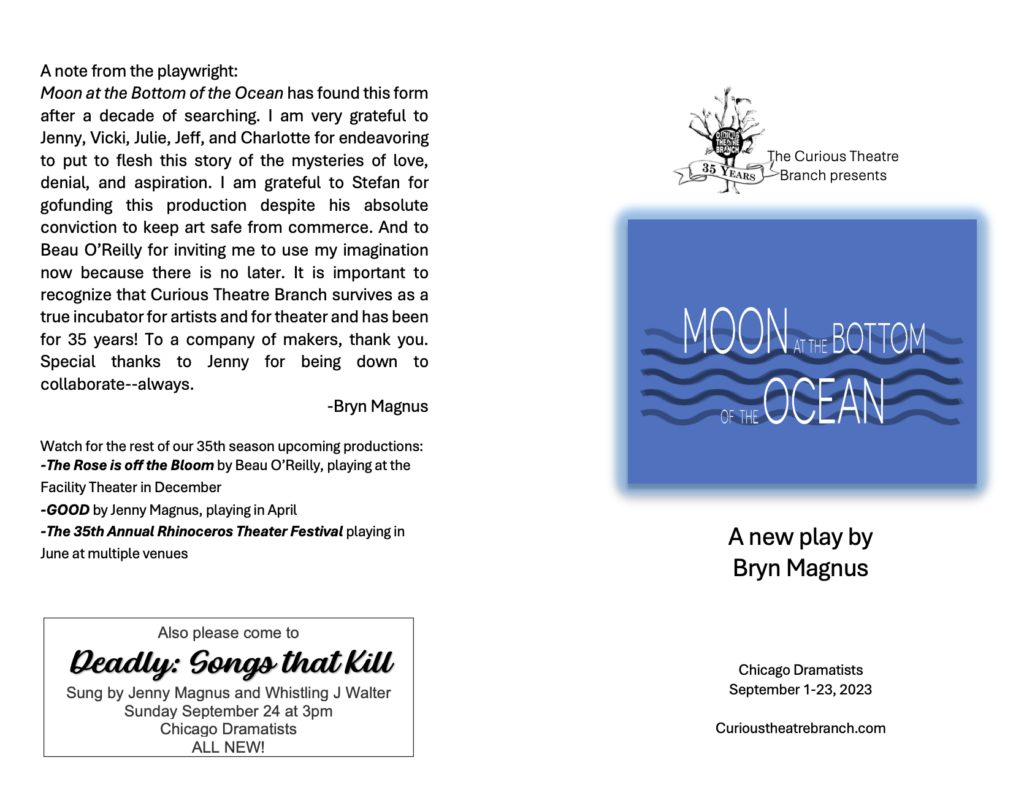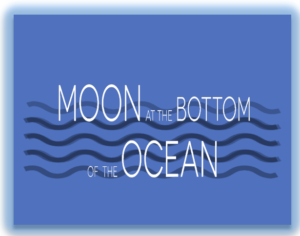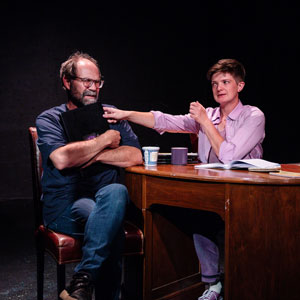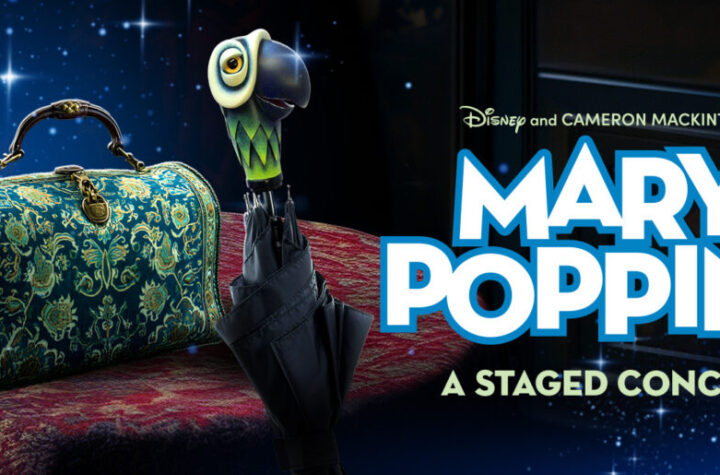
 *** Everybody has a different sense of humor, and good comedy is hard to write. I’ve never been all that fond of the Woody Allen style of comedy, and this new play “Moon at the Bottom of the Ocean” by Bryn Magnus falls into this genre: where the lead is a Jewish man who suffers from neurosis if not outright narcissism. He questions himself and his abilities and, in so doing, turns people surrounding him topsy-turvy with his obsessions. The underlying story neatly captures the angst of what it means to be a writer and putting words down on a page; it also fleshes out the trials and tribulations inherent to becoming a professional singer on stage. But what could happen if these two talented persons happen to be husband and wife?
*** Everybody has a different sense of humor, and good comedy is hard to write. I’ve never been all that fond of the Woody Allen style of comedy, and this new play “Moon at the Bottom of the Ocean” by Bryn Magnus falls into this genre: where the lead is a Jewish man who suffers from neurosis if not outright narcissism. He questions himself and his abilities and, in so doing, turns people surrounding him topsy-turvy with his obsessions. The underlying story neatly captures the angst of what it means to be a writer and putting words down on a page; it also fleshes out the trials and tribulations inherent to becoming a professional singer on stage. But what could happen if these two talented persons happen to be husband and wife?
Paul Shapiro (Jeffrey Bivens) is a writer of literary fiction who does not want to share his work with anybody, including his wife Leslie (Julia Williams), who has no idea what her husband has been writing over the years. Paul gets very upset when he learns that a fellow writer has just won the MacArthur Genius Award for his work—which, in Paul’s opinion, is not very good. His jealousy takes the better of him; he cannot sleep or rest or eat, knowing that this hack has received this highly prestigious award. But why? So he becomes obsessed with finding out what the man is currently working on—and the secret to his success. He thus hires Vera Sandoval (Vicki Walden) as a private detective to spy on his nemesis, who coincidentally does most of his work on a laptop computer at a café where Paul’s wife is employed as a waitress. But that is her day job. Leslie, it seems, is a gifted vocalist and wants to impress several talent scouts in the way she sings soul music. Unfortunately, Paul’s anxiety rubs off on her as well as his mania for a perfection he has yet to achieve. This gets Leslie questioning herself and her wonderful singing talent. “Am I too much in my head?” she asks herself. Then she decides that she has become too much like her husband.
This is a story of three characters colliding with each other with a synchronicity that at times seems too contrived. While the heart of this story is nicely conceived, its execution is not entirely satisfying. The first act is decent, largely consisting of a timeline that keeps going backwards, so that the audience can slowly understand the underlying context. There are many funny parts that keep our interest even when the story occasionally drags. One of the highlights is when Walden and Williams sing their original songs and lend their lovely singing voices to the story. But to my mind, the play goes downhill during the second act. Despite some clever twists and turns, several coincidences are far too weird. Perhaps I took this play (which is meant to be a comedy) much too seriously, as I took issue with several of the micro and macroaggressions. To my mind, the (implied) physical assault needs to be curtailed, as it takes away from the humor. Having said that, it is certain that many people in the audience liked this show more than I did, as I could judge by their reactions. Yet the person sitting behind me in the audience who was heartily laughing throughout the first act was now sighing by the end of the performance.
The preoccupation with the meaning of excellence—and creating excellence in any endeavor—is what makes the play so interesting. The script contains good dialogue and profound lines, my favorite of which goes something like this: “The obsession with objectivity is a bullshit distraction for those with mushy opinions.” This leads us to the main point of the story: Is there some objective standard on which creativity can be measured? Rather, isn’t it the subjective judgment of others that’s key to success in any endeavor? To put this another way, it’s not so much about the quality of what you create but, rather, about how your work is being received. It is less important to produce what you want to accomplish rather than being ready, skilled, and able to produce what other people want. And are others ready for what you can offer them? And how would you know?
“Moon at the Bottom of the Ocean”, directed and set designed by Jenny Magnus and produced by Curious Theatre Branch, is playing through September 23, 2023, at Chicago Dramatists, 1105 W. Chicago Avenue, in Chicago.
Tickets are priced on a “pay what you can” scale, with a suggested price of $20.

Performance schedule:
Fridays and Saturdays: 8:00 p.m.
Sundays: 3:00 p.m.
Note: There are no performances on Saturday, September 9th and Sunday, September 24th.
To purchase tickets and to learn more about this show and about other offerings, go to: https://curioustheatrebranch.com/.
To see what others are saying, visit www.theatreinchicago.com, go to Review Round-Up and click at “Moon At The Bottom of the Ocean”.






More Stories
“The Joffrey Ballet’s Golden Hour” reviewed by Carol Moore
“Mary Poppins : A Staged Concert” reviewed by Julia W. Rath
” I and You”